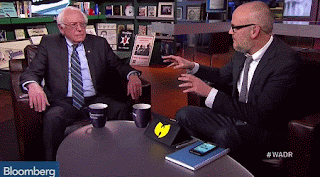Dear Readers,
 |
| Yarn when we claimed to not know that the responses were due before class. |
Nationalism-
What is nationalism? Nationalism is patriotic sentiment, principles, or efforts for a certain state. Nationalism was one of the radical ideologies that developed & flourished in post-Napoleonic Europe.
How does nationalism develop at this time?After the 1815 peace settlement with France, nationalist advocates argued that each people had its own cultural identity that was essentially self-evident, manifesting itself in a common language, history, & territory. Later on, though, European nationalists sought to turn the cultural unity they had perceived beforehand into a political reality. At this time, nationalism developed into loyalty to the nation-state, not so much ethnicity. The 19th century witnessed a flourishing of mass loyalty to the government & to the state, resulting in more public participation in government. Uniting subject nationalities was & always will be an issue, but the birth of representative government brought people to pledge allegiance to their state, a theme for the century & the dawn of a new age.
 |
| Nationalism at its finest. |
Socialism-
What is utopian socialism? Utopian socialism is a socialist ideal based on the belief that social ownership of the means of production can be achieved by voluntary & peaceful surrender of their holdings by propertied groups. Early French socialist thinkers believed that there was an urgent need for a further reorganization of society to establish cooperation & a new sense of community.
Who are Saint-Simon & Blanc? Count Henri de Saint-Simon believed that the key to progress was proper social organization, requiring the parasites (the court, aristocracy, lawyers, & clergy) to give way to the doers (the leading scientists, engineers, & industrialists). Louis Blanc focused on practical societal improvements in his Organization of Work, urging workers to demand universal voting rights & to take control of the state peacefully.
 |
| Feel the Bern. |
*See Mildred's post for a beautiful explanation of all the -isms using graphics.
Romanticism-
What is romanticism? Romanticism was characterized by a belief in emotional exuberance, unrestrained imagination, & spontaneity in both art & personal life. Emotional intensity, an overwhelming interest in nature & human potential, a rejection of materialism characterizes the Romantic Movement in Europe at this time.
Was Metternich a romantic? Metternich loved frolicking through meadows with revolutionaries & enjoyed exploring feeling, freedom, & natural goodness. HA YEAH RIGHT. Metternich was pretty emotionless, a forceful leader with a strict outlook on what society should be & how it should be run (conservatively).
Is the romantic period just another baroque? The Romantic Movement was a flourishing of ideals (expressed in the above questions) while the baroque (please tell me you people remember what the baroque was) was more of a physical development of the artistic aspects of society. Although Romanticism provoked the publication & creation of many new works within the realm of art, music, & literature, romanticism rejected materialism, something the baroque thrived on. Also, romanticism was adopted by a majority, mainly the lower classes, while the baroque was a representation of wealth & high social standing. The baroque & the romantic period both included a flourishing in the arts, but developed on very different premises.
What is an important romantic painting we should know? Liberty Leading the People by Eugène Delacroix, celebrating the nobility of the popular revolution in general & the revolution in France in particular.
 |
| Pictured: Coldplay's Viva la Vida album circa 2008. |
I hope you have understood dese stuffs above, so long my friends. (*Read in Dong accent*)
 |
| Me after I finished this post & also when I realized it's the weekend. |
xoxo,
Flo :)
No comments:
Post a Comment